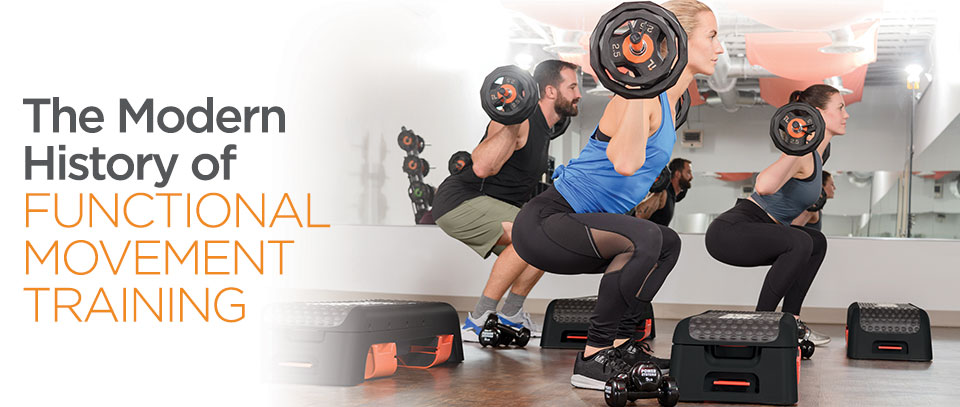The business of fitness is both dynamic and revolutionary, and continues to change and grow based on the need to find more ways to get and keep people engaged in healthy lifestyles. The history of the fitness industry is filled with the inception and evolution of many trends, but one seems to continuing to gain momentum year after year – Functional Training.
According to ACSM’s Worldwide Survey of 2017 Fitness Trends, functional fitness is still rating in the top 20 along with its affiliates, bodyweight training at #2 and high intensity interval training at #3. Functional movements are also predominant in group training (#6) programs. What started out as a way for personal trainers to vary client programming in private sessions, has turned into a wide spread demand for wide open spaces.
The evolution began when more and more personal trainers started leaving big box gyms filled with traditional equipment to start their own open concept training studios. Less of the expensive and expansive cardio and strength training equipment left more space for trainers to get creative with functional movement training concepts.
The next phase began with the rise in popularity of outdoor group fitness classes and boot camps featuring bodyweight & suspension training and exercises using a variety of fitness accessories, both practical (kettlebells, medicine balls) and impractical (battle ropes, tires, sledgehammers). A new fitness buzzword was soon to follow –HIIT training. Similar to functional training, high intensity interval training is not a new concept per se, however the two began to become synonymous and more mainstream among fitness enthusiasts.
Phase three in the evolution of functional fitness began with the constructions of fitness rigs or functional training stations (FTS) that were described as an “adult playground” of sorts. Soon to follow was another buzz worthy fitness acronym – SGT – aka Small Group Training.
Now we are seeing a shift in the evolution of functional fitness as it is no longer exclusive to the niche of personal training sessions held in small studios. Functional movement training is becoming more mainstream as both the big box health clubs and the high volume, low cost chains are clearing out the large footprint, traditional machines to keep up with the demand. The benefits far outweigh the cost of the “out-with-the-old-in-with-the-new” approach as the health club industry is shifting to create open concept “functional training spaces”. More space means more room to showcase the latest functional training accessories and programming. Perhaps most importantly, providing an open-area for functional training programs can add to your bottom line by creating an exclusive environment – apart from the group fitness studio – to host revenue-based SGT classes.
Though it might still be considered a “trend”, it seems functional training is here to stay as it covers a wide range of movement and strength training. Functional fitness programming continues to evolve with the demands of its followers and the need to provide new and dynamic fitness equipment. While kettlebells and medicine balls have been used for centuries, they are considered staples for functional training workouts. Now the traditional designs of battle ropes, weighted bags, and sledgehammers are being updated with features that make them must-haves for the health club functional training zones.
Echoing the demand of the industry, functional and small group training are two of the fastest growing categories of equipment here at Power Systems. If you are considering building out more space in your facility to supply the demand, check out our previous blog: Create a New Revenue Room with Functional Training. If you are looking for some new functional exercise and programming ideas – check out this video with our Master Coach, Bennie Wylie.
